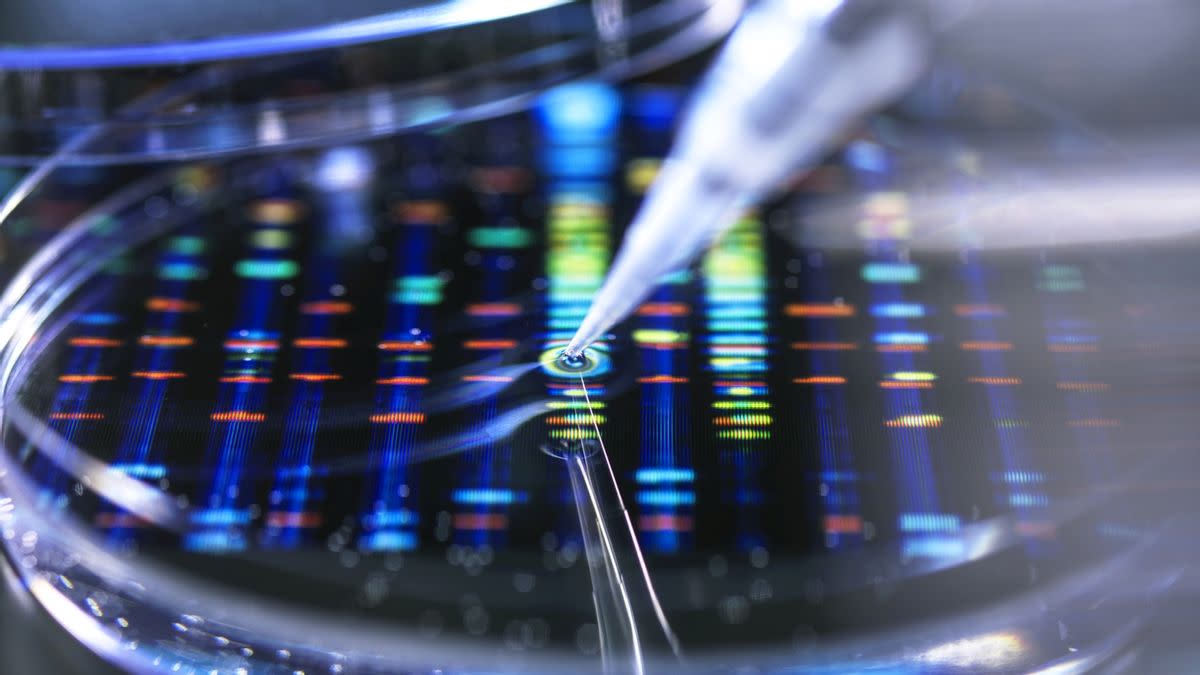Fact Check: It's Claimed that Women Retain DNA from Every Man They've Slept With. Let's Check the Science

Claim:
Women absorb and retain DNA from every man with whom they've had sex.
Rating:
In late February 2024, a claim that women "store DNA from every guy" they have ever had sexual intercourse with went viral on X (formerly Twitter):

Nothing in the above post contains a biological fact.
The claim, which has circulated online for years, stems from research into a phenomenon in which male cells are present in the tissue of human females — male microchimerism. Most, but not all, cases of this condition are the result of tissue derived from pregnancy with a male fetus. While the source of male DNA in women who have never had a pregnancy is an ongoing question in science, intercourse is merely one speculated source of male microchimerism.
This same claim has gone viral several times since 2012, usually as a defense of conservative social politics. Snopes first fact-checked the claim in June 2017, when the website known as Your News Wire (which presently goes by many names including The People's Voice) posted an article asserting that "Women Absorb and Retain DNA from Every Man They Have Sex With."
That article made the claim that "a new study" demonstrated that cells transferred from a man to a woman during intercourse become integrated into that woman's body after sex — "every single time." In actuality the study to which they referred, which was published in PLoS ONE in 2012, demonstrated male microchimerism in female brain tissue in 63% of the 59 women whom the researchers analyzed post-mortem.
Those researchers did not seek, nor did their study make, any conclusions about the likelihood of intercourse-derived male microchimerism. The paper's significance was that it demonstrated that male cells were able to cross what is known as the blood-brain barrier — a semi-permeable membrane that prevents most chemicals in the blood from entering the brain. In fact, that study does not once mention sexual intercourse as a proposed mechanism. This is as close as the 2012 study gets in terms of the source of those cells:
The most likely source of male [microchimerism, Mc] in female brain is acquisition of fetal Mc from pregnancy with a male fetus. In women without sons, male DNA can also be acquired from an abortion or a miscarriage. The pregnancy history was unknown for all but a few subjects in the current studies, thus male Mc in female brain [tissue] could not be evaluated according to specific prior pregnancy history. In addition to prior pregnancies, male Mc could be acquired by a female from a recognized or vanished male twin, an older male sibling, or through non-irradiated blood transfusion.
A paper published in 2015 investigated this topic further, concluding that — potentially — all of those potential mechanisms may contribute. That paper, which was fairly limited in its dataset, makes it clear that the sexual intercourse transfer of male chimerism remains entirely speculative:
Data suggest that male microchimerism in young girls may originate from an older brother either full born or from a discontinued pregnancy or from transfusion during pregnancy. We speculate that sexual intercourse may be important but other sources of male cells likely exist in young girls.
Research conducted since Snopes' original 2017 fact check have shed some, but not much, additional light on the origins and significance of male microchimerism. A September 2021 study, for example, reaffirmed the existence of male microchimerism in women who had never been pregnant. While the authors acknowledged the hypothesis that intercourse could be a source, they said their study was unable to address that question and proposed other alternative hypotheses:
Our study indicates that the origin of the microchimeric cells may not necessarily be a close family member. One source is repeated sequential fetal-maternal exchanges across generations. Possible further sources are unreported or unrecognized interrupted pregnancies, breastfeeding, placental structure, pregnancy complications including preeclampsia and it has also been suggested that sexual intercourse may play a role. We did not have these data available for a sufficient number of participants for comprehensive analyses of these alternatives.
Collectively, all science can say with confidence is that many — but not all — women have some male cells in their tissue and that most of those cases — but not all — are related to pregnancy with a male fetus. Science is unable to answer with certainty if intercourse is one potential source of male cells in cases where no pregnancy has occurred, but it absolutely can not say that a woman "will store DNA from every guy that entered her private parts without protection." Science isn't even sure such a phenomenon occurs at all.
Because the science underlying the claim that women retain the DNA of all the men they have ever slept with is misrepresented, the assertion is False.
Sources:
Chan, William F. N., et al. "Male Microchimerism in the Human Female Brain." PLoS ONE, edited by Martin Gerbert Frasch, vol. 7, no. 9, Sept. 2012, p. e45592. DOI.org (Crossref), https://doi.org/10.1371/journal.pone.0045592.
Funke, Daniel. "Fact-Checkers Have Debunked This Fake News Site 80 Times. It's Still Publishing on Facebook." Poynter, 20 July 2018, https://www.poynter.org/fact-checking/2018/fact-checkers-have-debunked-this-fake-news-site-80-times-its-still-publishing-on-facebook/.
Johnson, B. N., et al. "Male Microchimerism in Females: A Quantitative Study of Twin Pedigrees to Investigate Mechanisms." Human Reproduction, vol. 36, no. 9, Aug. 2021, pp. 2529–37. DOI.org (Crossref), https://doi.org/10.1093/humrep/deab170.
Müller, Amanda Cecilie, et al. "Microchimerism of Male Origin in a Cohort of Danish Girls." Chimerism, vol. 6, no. 4, Oct. 2015, pp. 65–71. DOI.org (Crossref), https://doi.org/10.1080/19381956.2016.1218583.
Yan, Zhen, et al. "Male Microchimerism in Women without Sons: Quantitative Assessment and Correlation with Pregnancy History." The American Journal of Medicine, vol. 118, no. 8, Aug. 2005, pp. 899–906. DOI.org (Crossref), https://doi.org/10.1016/j.amjmed.2005.03.037.

 Yahoo News
Yahoo News 

